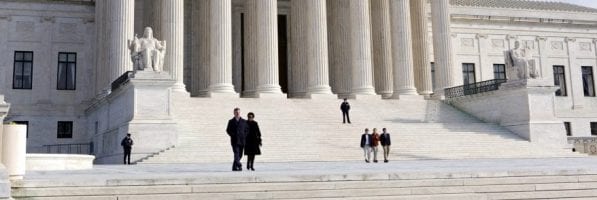Financing Strategies For “Nice” People, and More – New York News

Let’s explore some of the most interesting stories that have emerged from New York business schools this week.
When It Comes To Their Finances, Nice Guys Fall Short – Columbia Business School News
According to new research co-authored by Columbia Business School‘s Sandra Matz, “people who describe themselves as ‘agreeable’ are strongly connected to a bleak financial future—including lower savings, higher debt, and a higher likelihood of becoming financially insolvent.”
Matz elaborates, “This research proves that being nice may win friends but it can cost a lot of money. This is especially true for those who start off with less money, as they have no financial safety net to compensate for their personal habits. Unfortunately, having a nice and warm personality—in the arena of business and finances—can often have real financial costs.”
According to the article, “Agreeable individuals perceive money to be less important than their more disagreeable counterparts, and consequently have, on average, worse financial health—which is measured by savings, debt, and default behaviors.”
“Nice Guys Finish Last: When and Why Agreeableness Is Associated With Economic Hardship” was published in the Journal of Personality and Social Psychology.
You can read more about Matz’s research here.
Opportunities Abound in Distressed Debt Investing – Gabelli Connect
The Fordham University Gabelli School of Business recently hosted a talk at its McNally Amphitheatre on the subject of “distressed debt investing,” a multi-trillion dollar industry in which “investors hunt for opportunities where they can purchase debt [with the hope] that the gambit will pay off eventually.”
Attendees were privy to first-hand accounts of distressed debt investments and legal advice from a variety of experts. Baupost Group partner Fred Fogel highlights the “importance of both curiosity and perseverance.” Paul Weiss Bankruptcy and Corporate Reorganization Co-Chair Alan Kornberg “encouraged those just starting out to get a feel for the process by sitting in on bankruptcy hearings.”
Former Wachtell Lipton Bankruptcy Department Head Chaim Fortgang emphasizes the creation and maintenance of “good working relationships.”
You can read more about the talk here.
Look to Entrepreneurs For What’s Next in Healthcare – Johnson Business Feed
The Johnson Business Feed interviewed visiting faculty member Elspeth Murray about the increasing demand for innovation in the healthcare industry, from the use of smartphones to the expansion of ambulatory care.
“Consumer behavior has changed, and that will begin to push on the healthcare system. At a certain point, healthcare practitioners are either going to lose patients or be forced to adopt new ways of treating and accommodating patients.”
She advises students returning to school to focus beyond their specialty and remain “open to taking risks and re-framing your view of the industry, and to be aware of what is happening outside of your bailiwick. Take a good look around at what’s happening and go for it.”
Murray’s 2002 book, Fast Forward: Organizational Change in 100 Days, which she co-authored with Peter R. Richardson, explores how “entrepreneurial thinking gives you the creative ideas and the juice and design thinking helps you see the problems to be solved in the right way.”
Check out the rest of the Murray interview here.
Supreme Court Ideology, Deniability, and More – Chicago News

Let’s explore some of the most interesting stories that have emerged from Chicago business schools this week.
Supreme Court Justices Become Less Impartial and More Ideological When Casting the Swing Vote – Kellogg Insights
In a new paper coauthored by Northwestern Kellogg Associate Professor of Managerial Economics and Decision Sciences Jörg Spenkuch and Emory University’s Tom S. Clark and B. Pablo Montagnes, the trio found that “the effect of a justice’s ideology on how he or she votes essentially doubles when the vote is pivotal.”
Spenkuch explains, “”Our idea of a good judge is that of an impartial umpire. But justices in some cases disregard the role of the umpire in favor of that of the politician.”
“During confirmation hearings, no justice ever admits that they’re interested in making policy. There is a nontrivial number of cases that would be decided differently if justices did not vote strategically. It draws into doubt the notion of the Supreme Court as an institution where litigants come to get justice.”
You can read more about the trio’s research here.
Sidestepping the Pitfalls of Overconfidence with Plausible Deniability – Mendoza Ideas & News
In Notre Dame University Mendoza College of Business postdoctoral Research and Teaching Associate Nathan Meikle’s forthcoming Journal of Personality and Social Psychology paper, he illuminates how people in positions of power—politicians, business leaders—can successfully toe the line between confidence and arrogance.
According to the article, “expressing confidence non-verbally through making eye contact, gesturing, adopting an expansive posture or speaking in a strong voice allows people to enjoy the social benefits of expressing confidence while simultaneously reducing the risk they’ll be punished for overconfidence.”
The key is to leverage plausible deniability — “the ability to deny responsibility due to a lack of concrete evidence.”
Meikle explains, “The plausible deniability hypothesis explains why overconfidence sometimes, but not always, is punished. For example, verifiably overconfident claims, void of plausible deniability, will face consequences. However, there are a number of ways people can create plausible deniability.”
“Future claims necessarily enjoy some degree of plausible deniability because they cannot be proven wrong in the moment,” Meikle continues. “Thus, individuals boasting about future events would be expected to enjoy the benefits of expressing confidence while simultaneously sidestepping the potential costs. However, even if overconfident claims are eventually proven false, people can still create plausible deniability by undermining the messenger, such as calling it ‘fake news.’”

“One strategy is to make audacious claims about future events. President Trump frequently makes bold claims, such as he alone can bring coal mining jobs back to West Virginia,” Meikle explains / Photo via DOMINICK REUTER/AFP/Getty Images
You can read the full article from Mendoza Ideas & News here. “Is Overconfidence a Social Liability? The Effect of Verbal Versus Nonverbal Expressions of Confidence” is also available here.
Hurricane Victims Face Long, Uncertain Road to Recovery – Gies College of Business Blog
U. Illinois Gies College of Business Professor of Finance Tatyana Deryugina, who studies the financial impacts of natural disasters on families, explains that “even after the floodwaters recede … families displaced by Hurricane Florence will face months and months of financial hardship.”
Deryugina explains, “If you have kids, there’s the school closures—so parents might have to figure out what to do with their children in the meantime. Even if your workplace is open, you may not be able to go back and work. Building materials will be expensive in the short-term. A lot of people rebuilding causes supply issues.”
“Even if you rebuild, and it looks nice and new, people are going to remember this event. Not only are you going to face building and repair costs, but now your home is worth less than it was before”
She adds, “What we’re seeing with Florence is rivers overflowing, which is worse than just having the floodwater accumulate from the heavy rain because that’s going to be longer-lasting.”
“New Orleans was below sea level, so the flooding just persisted. The longer areas stay uninhabitable, the more people are going to leave and just not return. If you’re somewhere for a couple months, it becomes much easier to stay there.”
You can read the full article here.
NYU Stern Publishes Revealing Dating Research Data

For any of our brave readers currently swimming with sharks in the dating pool, you might want to take a gander at new research that might help you avoid getting eaten alive—or pulled into some rip tides, figuratively speaking.
Haas School Professor on the Perception of Physical Strength in Leadership

Cameron Anderson, professor of management at UC Berkeley’s Haas School of Business, recently co-authored a research paper addressing the perception of physical strength in those with leadership roles.
The research will be published in the Journal of Personality and Social Psychology.
